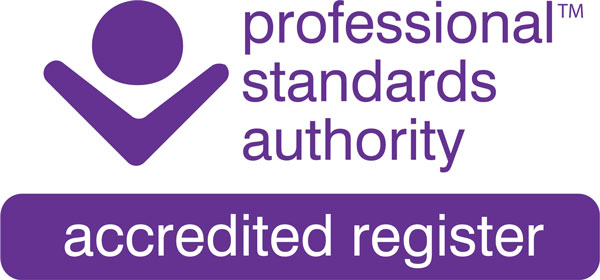Inside our ethics committee
Monique Nauta, chair of the HGI’s Registration and Professional Standards Committee (RPSC), describes how and why our complaints procedure has been updated.
IT is never pleasant to find oneself the subject of a complaint from a client. An article published in this journal a couple of years ago described how shocking and stressful it was for an HG practitioner to receive (out of the blue, as far as she was concerned) a letter from the HGI, informing her that she was under investigation. Although she was duly exonerated, the case took months to reach its conclusion, because of the time it took for the complainant to respond to paperwork. To the practitioner, it felt like a lifetime and having the case hanging over her cast a pall over all her other activities for that period.1
It is for such h reasons that a working group, comprising former RPSC co-chairs Trevor Bailey and Owen Davis, HGI board member Carel Beynen and I (both Carel and I are former lawyers), was formed to revise the procedure, so that it can work better for everyone involved. We are enormously grateful to our predecessors Sue Saunders and Ian Thomson, who put in a vast amount of work to create the original procedure, leaving us in the fortunate position of being able to build on their structure, much as a tailor can focus on exact fit only once the fabric is cut out and shaped into a suit.
So we have incorporated what we have learned and introduced a fresh approach, which should enable many issues to be resolved without need for formal proceedings. The new system for making, adjudicating and managing appeals against complaints is designed to be in line with HG principles and, as far as is possible, take into account the needs of both practitioner and complainant during this emotionally demanding time. The full procedure can be found in the members’ area of the HGI website. So, what are we doing differently?
Emphasising informality
It is testament to the quality of our therapy and our therapists that,
relative to the number of HG practitioners seeing clients every day, HGI receives remarkably few complaints, many of which are not of a serious nature. Indeed, it is usually miscommunication that is at the heart of the issue. The new procedure starts from the assumption that such problems may be resolved, preferably informally, through enabling clear communication and understanding, leading, for example, to apology or other mutually agreed solutions.
Previously, when a complaint was made, the complainant would need to complete a form to start the process. If the complainant couldn’t or didn’t want to complete this form, the complaint would not be investigated. The practitioner would know nothing about any complaint, unless directly forewarned by the client, until they received a formal notification from the HGI. We have softened both parts of this process.
Now, if someone cannot complete the form, they can choose to receive a phone call, which is recorded, from the RPSC coordinator, who acts as complaints manager. The complainant provides details of the complaint verbally, so that the form can be completed on their behalf and be sent back to them to check and sign. Adding in this important step gives the complainant a sense of control over the process if, for instance, their degree of distress or a learning difference would otherwise have prohibited them from having their complaint heard at all.
At this point, the HG practitioner is notified that there is a complaint against them. To reduce the immediate stress and sense of insecurity that this will almost inevitably cause, we no longer notify the practitioner by letter. Instead, the complaints manager phones to tell them that there has been a complaint and that their supervisor will be ready to assist them, if called upon. This should take away any sense of isolation at such a potentially alarming moment.
The supervisor’s assistance is likely to take the form of calming the therapist down, helping them to review their actions, decide if there is a case and, if so, what evidence will be important to present, as well as reminding them to contact their insurers. It is a supportive role, whereby the supervisor helps the practitioner to be in the best mental state to handle the situation. All responsibility, however, remains with the counsellor.
Re-education
Some of the stress experienced in the old system occurred because of generosity in extending deadlines when people would ask at the last minute for extra time to complete responses. This could prolong the agony for the other party, left hanging in a state of uncertainty for longer than necessary. We now emphasise in advance that it is extremely important to keep to the established time lines, and we send alerts when time is running out.
Full details of a complaint must be lodged within 14 days of its being logged, except in exceptional circumstances. A panel of RPSC members will decide, within seven days, if there is a case to answer and, if so, will guide the practitioner on which points they need to address. The practitioner must then respond within 14 days. These tight timings can be extended only in the case of major life events, such as serious illness, personal injury or bereavement. Planned holidays, care or work responsibilities are unlikely to count.
No investigation process
Importantly, there is no longer any investigation carried out by the RPSC. The act of being investigated was often perceived as a search for evidence, escalating emotional arousal and feelings of assumed misconduct – unhelpful for both investigator and practitioner. Now, only the written accounts supplied by both parties are used to enable the complaints manager to decide how serious the complaint may be. The complainant must ensure that their case is presented clearly and all additional documents are attached, because their submission will be treated as final, and will be shared with the practitioner, if the complaint goes ahead. Ditto the practitioner’s written response or rebuttal.
If the allegation is serious – for instance, inappropriate touching or financial impropriety – the formal procedure must be followed. But, as said earlier, this isn’t necessary in most cases. So, wherever possible, the complaints manager will contact the complainant and ask what they need to have happen in order to feel that their complaint has been taken seriously, if upheld. Usually they want an explanation or an apology or an assurance that such a situation will not arise again.
As most complaints arise from miscommunication, the practitioner may well be happy to give an explanation, an apology and an assurance that the situation will not arise again. For instance, perhaps, to aid rapport building or to help build sense of self-worth, the practitioner has said to the client, “You are looking extremely nice today!” Many clients may receive this positively, as intended. Someone who feels extremely vulnerable or who is fragile because of past grooming and sexual abuse may find such personal comment an invasion of their privacy and feel highly uncomfortable. If both the complainant and the practitioner can recognise that intentions were misunderstood, a written apology may be all that is required and the complaint can be closed.
Simple misunderstandings commonly underlie complaints in couples’ therapy, where both parties may be highly sensitive to language used by the therapist. So, if one member of the couple explains their position on an issue and the therapist responds, innocently, “I understand what you are saying” – or even just nods – the partner may perceive that as validation of the other’s position.
Mediation
If the complainant does not agree to the informal approach, or the practitioner doesn’t agree to the complainant’s reparation request, they will be offered mediation to help them resolve the conflict. The complaints manager will appoint a trained lead mediator and a comediator from the RPSC and, again in the interests of arriving at the swiftest possible conclusion, aim to complete the process within seven weeks. Only if mediation does not lead to resolution, or one person withdraws, will the complaint become formal.
Re-education
In devising the new procedure, we wanted to put a focus on re-education. So, if a practitioner hasn’t been aware of how a compliment such as “you look nice” may be received, we can suggest that they discuss such language with their supervisor. It may be advisable, for instance, if a compliment is deliberately used to bolster a client’s low sense of self-worth, that a therapist records this in their notes. A full understanding of ethics is vital for avoiding unnecessary complaints – and this is now receiving more emphasis in both diploma and supervisor training.
Imperfect performance of the rewind technique can easily attract complaints. It may be a matter of a practitioner realising that they didn’t explain the method clearly enough or that they didn’t enquire afterwards how the client was feeling (enabling them to mention any difficulty, which could have been addressed). If the shortcoming is more serious, the complainant may feel satisfied if they know that the therapist has agreed to retraining.
Formal hearings
Despite such efforts to meet everyone’s needs as painlessly as possible, it is always the complainant’s right to insist on the formal process, however trivial the complaint may appear and however unlikely that it will be upheld. The formal process will always be followed, of course, in the case of serious complaints.
The formal procedure remains as before, except that we will now always hold a hearing before the adjudicating RPSC panel. An online hearing is ideal, if there is good connection and a safe line ensured. This saves the stress of travel, and direct face-to-face contact, and allows the sense of security that may come from being in one’s own home or office. Both parties must be involved, and can be supported or represented, if they find the idea of facing the other person too traumatising.
Appeals
Previously, if one party disagreed with the outcome of the formal procedure, the whole process would start again from scratch, with a new (previously uninvolved) panel re-investigating. Now, an appeal is allowed only if the adjudicating panel is deemed not to have followed the proper process, as set out in the indicative sanctions guidance.
Our hopes
It comes with the territory that complaints are stressful and we want to reduce this for all parties. The old procedure could be gruelling for the RPSC panels too, who, after all, are doing this work in a voluntary capacity. Investigating the complaint, going backwards and forwards between parties with questions from one to the other, dealing with distress, sometimes emotional outbursts, time delays and then wading through a plethora of information has taken its toll on more than a few valiant RPSC members. Sometimes the procedure took so long and was so harrowing that clients reluctantly dropped their complaints and thus didn’t experience closure. Some parties brought in lawyers and that increased the tension, often preventing people from arriving at an amicable conclusion.
We want a good, humane complaints procedure that we can all buy into, because we all want it to be safe to see an HG counsellor. We hope we have achieved this.
References
- Winn, D (2019). The duty of candour. Human Givens, 26,
2, 46–8.

Monique Nauta, chair of the HGI’s Registration and Professional Standards Committee (RPSC).

This article first appeared in the Human Givens Journal – Vol 28, No. 1: 2021
Back issues available – each issue of the HG Journal is jam-packed with thought-provoking articles, interviews, case histories, news, research findings, book reviews and more, with no advertising. If you find the articles, case histories and interviews on this website helpful, and would like to support the human givens approach, you can buy a back issue today, they’re available in PDF and print format.

